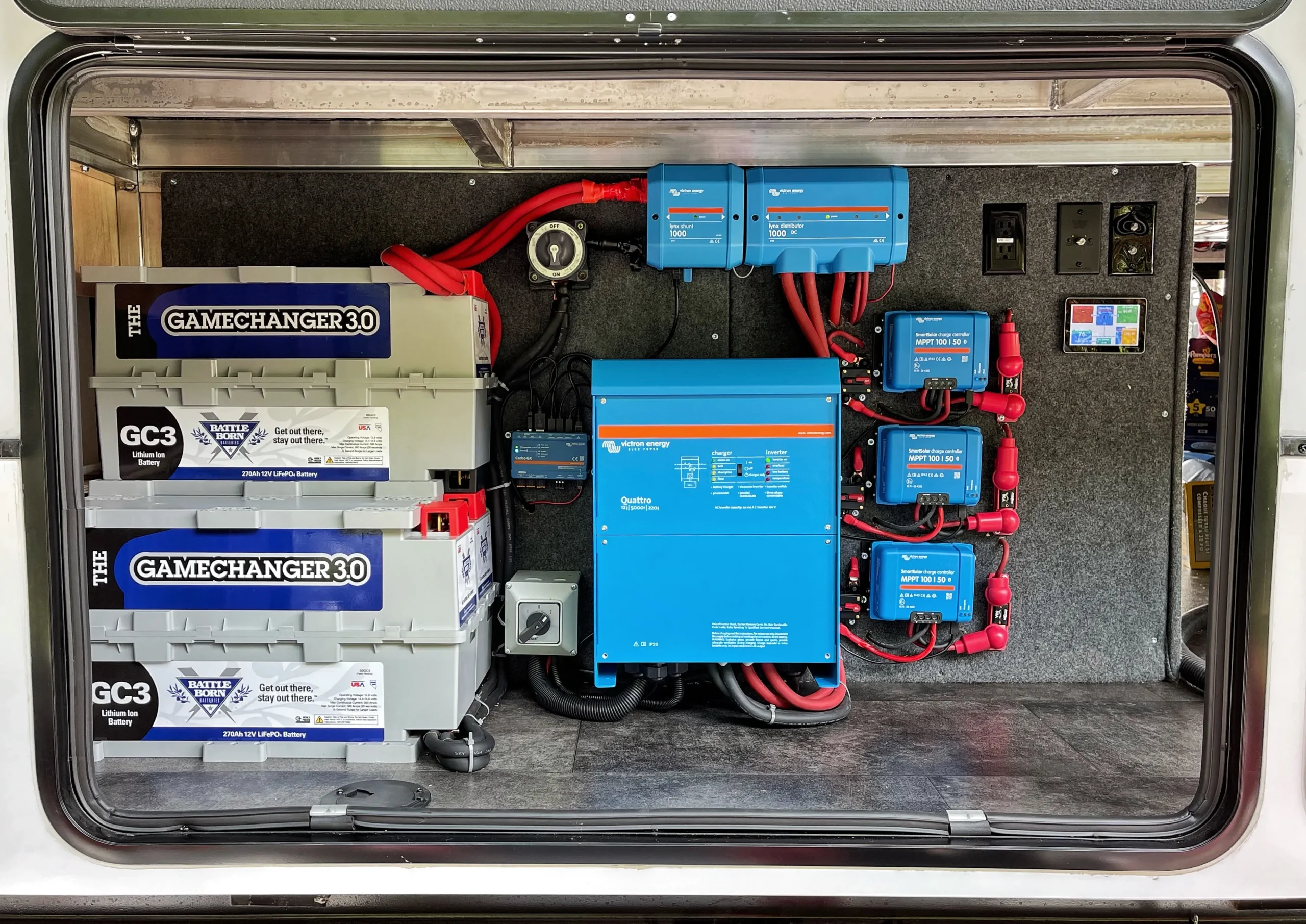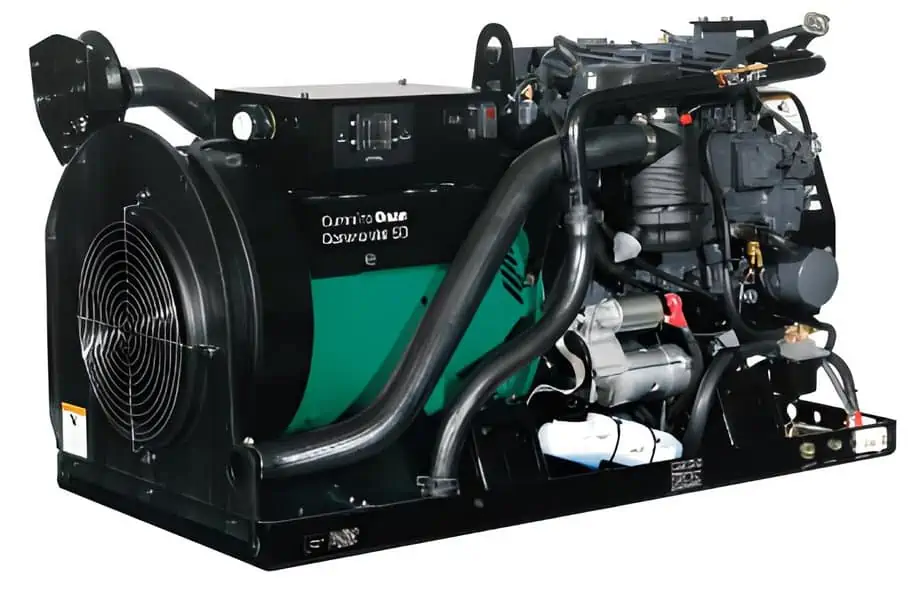Coach batteries inside an RV motor home are also called house batteries. They are responsible for providing power to the non-engine electrical appliances or accessories in an RV, including its lighting. So, can your RV generator charge the coach batteries?
Yes, RV generators can charge coach batteries. To do so, you must simply connect the RV power wire to the generator. For this, a typical 30 amp/120-volt receptacle must be fitted inside your generator. If it is 220 volts, an adaptor will be required to lower the voltage and prevent the battery from getting short-circuited.
It is essential to keep your RV’s coach batteries charged if you want to utilize your interior electrical equipment when there is no shore power nearby. Continue reading to learn more about this method!
Contents
Will an RV Battery Charge when Plugged into a Generator?

Charging your RV battery by plugging it into a generator is easy and convenient if you do not plan on staying in one place for long. Before we detail the method, there are a few safety guidelines that you must follow:
1. Ensure that your generator is operated outdoors only to prevent accidents. It must be kept at least 3 feet away from any open doors and windows.
2. Next, you must understand how to shut off your generator in an emergency swiftly.
3. Have a thorough grasp of all the controls and outlets on your model and all safety concerns. For this, carefully read the owner’s manual.
4. Place the portable generator on solid, level ground if you use one. This will prevent it from toppling and causing an accident.
5. Before the wired and cords are connected to the generator, check them thoroughly. If there are any broken parts, replace them before charging your battery.
We are prepared to start charging your RV’s batteries when you have followed all necessary safety measures. Before starting your generator, re-check its fuel levels and air filter.
The generator will then be started by opening the fuel valve, closing the choke, and turning the key to the “On” position. Next, re-insert the choke knob. Before attaching any electric cables or appliances to your generator, let it run for several minutes after starting. This will allow the generator to warm up before it can be used to charge your batteries.
Then, like a mains power station, connect the RV power chord to the generator’s inbuilt 30 amp/120-volt AC connector. You may require a 30 amp twist to 30 amp RV converter if the power cable for your RV does not fit into the generator’s 30 amp receptacle.
Your generator will now be charging your RV’s coach batteries and supplying to the electrical equipment in your RV.
The following video details the process of charging an RV’s coach batteries with a generator:
Now, you might wonder how long the generator needs to be plugged in to charge the batteries.
How Long Does the Generator Need the Operator to Charge Coach Batteries?
Several variables completely affect how long it takes to charge your RV’s coach batteries. Firstly, this depends on the quality and capacity of your batteries. The number of appliances that need power, the generator’s power output, and the number of batteries that need charging also vary the time the generator needs to run.
If you are using a new or recently replaced battery, it will have almost full capacity and only take a few hours to charge fully. However, if the quality has been reduced between 30 to 40% due to wear and tear, the generator can take around 10 hours to charge your coach batteries.
Prolonging your battery’s life and capacity only requires some care and maintenance. If done so correctly, coach batteries can last longer than 6 years. However, some RV owners habitually replace batteries every couple of years. This only increases the maintenance cost of your RV and can be avoided by taking care of your battery.
Sometimes, your generator might not be charging the coach battery. Continue reading to find out why!
Reasons Why Generators Fail to Charge RV Coach Batteries

Finding out that the RV’s power converter is not recharging the battery is highly irritating. Below are some of the most typical issues and their solutions.
Wiring is Damaged
Damaged wiring is common. Your generator might not be charging the battery if the wiring is damaged. Wiring can get damaged for several reasons, like overheating, plugging into damaged appliances, tiny animals chewing on them, or broken wire insulation.
Examine each circuit’s wiring for any indication of damage or loose connections. If you find damaged wiring, replace it instantly to avoid any major accidents in the future.
The Fuse is Blown
A blown fuse is one of the most frequent causes of an RV generator failing to charge the battery The most common reason a fuse blows is that there is too much power drawn towards it from the circuit.
It will be necessary to repair a blown fuse to restart your converter and recharge the battery. Examine the fuse box next to the electrical panel if you think that this is the situation. Simply replace the blown fuse with a new one to see if it solves the problem. To prevent injury, remember to turn off the generator and battery before you do so.
Corrosion in the Battery Terminal
The battery terminals’ corrosion is another frequent problem. This may occur if the battery is kept inactive for a long time or if it is kept in a wet environment while being stored. Battery terminal corrosion occurs when a reaction between the battery acid and metal terminals occurs.
Make a thick paste mixture of baking soda and water to remove corrosion from the terminal posts. The baking soda neutralizes the leaked battery acid. let the mixture sit and bubble on the battery for some time before you clean the battery terminals with a paper towel.
Conclusion
As observed from the information above, your RV generators can easily charge coach batteries if you follow the abovementioned guidelines. However, your generator might be faulty at times, but these problems can easily be fixed.
